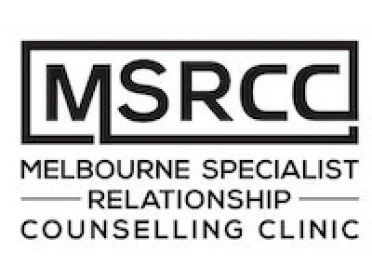
Even though the world around you appears to be moving on, trauma can leave lasting scars. Emotional trauma can alter how you think, feel, and relate to other people, whether it comes from an individual incident or as time passes from repeated experiences.
You may be feeling overwhelmed, numb and disconnected. At times, it can be difficult to explain your reactions even to yourself. These aren’t indications of weakness. These are indications that something painful has occurred, and your entire body and mind are attempting to deal with it.
We at MSRCC understand that overcoming trauma calls for patience, care and the appropriate support. Recovery is possible, regardless of your experience. Understanding what trauma is and just how it impacts you is the initial step.
What Is Emotional Trauma?
Emotional trauma occurs when a distressing experience overwhelms your ability to cope. It might be caused by a single event such as an accident, loss, or betrayal. Or it may come from prolonged situations, like childhood neglect, abuse, bullying or living in a home where you never felt safe.
Unlike day-to-day stress, emotional trauma lingers. It can disrupt your ability to feel secure, to trust others, or to understand your own emotions. Even if the event is in the past, your body and mind may still feel like it is happening now.
How Trauma Affects the Mind and Body
Trauma lives in the central nervous system. It is not just something you “get over” by thinking differently or being strong. The aftereffects can show up in ways that feel confusing or even invisible to others.
Common trauma responses include:
- Feeling constantly on edge or anxious
- Struggling to trust others or feel safe in relationships
- Emotional numbness or disconnection
- Difficulty sleeping or concentrating
- Physical tension, fatigue or unexplained aches
These reactions are the body’s way of trying to protect you. But over time, they can make life feel harder than it needs to be.
How to Heal from Trauma
Healing from trauma is not about forgetting what happened. It’s about finding ways to live with it, without it controlling you. Some first steps you can take include:
Naming and acknowledging the trauma
Giving your experiences a name helps validate them. You do not need to minimise or compare them to what others have gone through.
Understanding trauma responses
Learning why you feel or react a certain way can ease shame and build self-compassion.
Creating emotional and physical safety
This might mean choosing relationships where you feel seen and respected, or making your living space feel calming and secure.
Rebuilding trust in yourself
Trauma can make you doubt your own instincts. Part of healing is learning to listen to your body and honour your emotional needs.
If you need support as you begin this process, trauma counselling at MSRCC can offer a steady, confidential space to help you feel safer and more in control.
How to Heal from Childhood Trauma
Childhood trauma can shape your self-worth, relationships and worldview in quiet but lasting ways. You might carry beliefs like “I am not good enough”, or “I have to earn love by being perfect, or “I cannot trust anyone to fully love me”. These beliefs were often formed in environments where your needs weren’t fully met.
Some ways to begin healing include:
Reparenting your inner child
This involves caring for the younger part of you with kindness, patience and protection.
Practising self-compassion
Speaking to yourself with the same gentleness you would offer a friend or child can begin to rewrite internal narratives.
Noticing triggers without judgement
Instead of avoiding emotional reactions, try to observe them. Ask, “What might this part of me need right now?”
Healing childhood trauma can be slow and layered, but many people find that with support, it leads to a stronger, more peaceful sense of self.
How to Heal Emotional Trauma Over Time
Long-term healing is about integrating your experiences in a way that brings greater clarity and calm. Some practices that can support this process include:
Mindfulness and grounding
These techniques help bring your attention to the present moment and reduce overwhelm.
Journalling
Writing can be a gentle release and a way to process difficult emotions at your own pace.
Emotional regulation skills
Learning to sit with emotions without being swept away helps build resilience.
Movement and somatic therapies
Trauma is often held in the body. Gentle exercise, yoga or body-based therapies can help release built-up tension and reconnect you with yourself.
You do not have to master all of these alone. MSRCC offers a range of therapeutic options to support every stage of your journey.
The Role of Professional Support in Healing
While self-help tools are valuable, there are times when working with a professional can make all the difference. If trauma is affecting your ability to function, connect or feel safe, or maintain healthy relationships, reaching out for trauma counselling may be the next step.
At MSRCC, we use evidence-based approaches including Cognitive Behavioural Therapy (CBT), trauma-informed therapies and somatic-focused methods to help you process trauma in a way that feels manageable and respectful. Every client’s journey is unique; therapy is tailored to suit your pace, goals and story.
If you are unsure whether therapy is right for you, feel free to contact us. We can talk through your concerns and help you decide what support might be helpful.
A Final Word: You Can Heal
Learning how to heal from trauma, especially how to heal from childhood trauma or long-held emotional pain, is not a quick process. But it is possible, and you do not have to do it alone.
You deserve to feel safe in your own skin, to connect with others without fear, and to trust that your future can be different from your past.
If you are ready to take a step toward healing, or just want to learn more, MSRCC is here. Reach out for compassionate, expert support as you begin or continue your healing journey.


